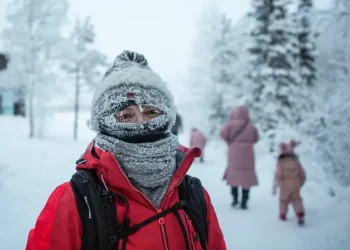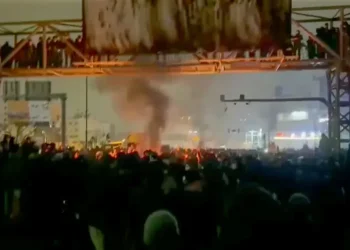Afghan Pilots in Limbo: Abandoned Allies and Uncertain Futures
For Tauheed Khan, soaring above Kabul in his cargo plane was a moment of immense pride. “I flew over my childhood home,” he recalled. “The joy was indescribable.”
Khan was among the Afghan Air Force (AAF) pilots who played a crucial role in the 20-year U.S.-led war against the Taliban, carrying out airstrikes alongside American forces. However, after the U.S. withdrawal in August 2021, the Taliban swiftly regained control, leaving pilots like Khan at grave risk.
Now, stranded in Pakistan with his family, Khan lives in constant fear of retaliation from the very forces he once fought against. And with anti-migrant policies tightening in both Washington and Islamabad, time is running out for a safe escape.
The U.S. invaded Afghanistan in 2001 in response to the September 11 attacks, toppling the Taliban and ushering in a period of democratic reforms and improved rights for women. Yet, conflict continued, especially in rural areas, leading to tens of thousands of casualties. By 2021, as the U.S. withdrew and relied more on Afghan forces, civilian deaths surged to over 5,000 in just six months.
The rapid collapse of the Afghan military and government enabled the Taliban’s return. According to Human Rights Watch, those affiliated with the former government remain at high risk, facing extrajudicial killings, enforced disappearances, and arbitrary arrests.
Afghan pilots became high-profile targets due to their visibility in local communities. “Eight to ten of my colleagues were assassinated in targeted attacks,” Khan recounted.
Shawn Vandiver, founder of #AfghanEvac, a coalition aiding Afghan allies, emphasized the betrayal these pilots face: “They risked everything for America. Now their lives are on the line due to our broken promises.”
Khan’s friend, aviation engineer Khapalwaka, lived under constant threat for his role in intelligence and reconnaissance operations. Forced to relocate every few months for safety, he now struggles to survive in Pakistan, selling firewood to support his family. “I fear the Taliban’s reach even here,” he said. “I just want my daughters to have an education.”
The Taliban, however, denies targeting former pilots. “They are an asset to Afghanistan,” spokesperson Zabiullah Mujahid told CNN. “Some have already returned and are serving the nation.”
Khan currently resides in a cramped apartment in Islamabad, his children sleeping on the floor under worn blankets. He fled to Pakistan in March 2022, following advice from his U.S. trainer. Initially, he followed the steps of the U.S. Refugee Admissions Program (USRAP), finally securing an interview at the U.S. embassy in April 2023. Since then, he has heard nothing.
Policy shifts under former President Donald Trump have worsened his prospects. Executive orders have halted refugee admissions and cut funding for Afghan Special Immigrant Visa (SIV) holders. According to #AfghanEvac, at least 2,000 Afghans who had already been approved for resettlement are now in limbo. Reports suggest an expanded travel ban may soon include Afghanistan.
Pakistan, historically home to millions of Afghan refugees, has become increasingly hostile toward migrants. Since October 2023, authorities have intensified crackdowns, and in February 2024, Pakistan announced the repatriation of all Afghans bound for third-country resettlement by March 31.
Abbas Khan, Pakistan’s chief commissioner for Afghan refugees, justified the move, stating, “We simply don’t have the resources to support migrants in transit.”
For pilots like Jawad Ahmed, the deadline brings dread. A former Black Hawk helicopter pilot, Ahmed said, “Every day blends into the next. I fear for my family’s safety because of my past military service.” He, too, has been in limbo for two years after completing a U.S. immigration interview in May 2024.
“Pakistani police are arresting Afghan neighbors,” he added. “My children are overwhelmed with fear.”
Returning to Afghanistan is not an option. “Only death, difficulties, and horrors await us,” Ahmed stated.
His family in Afghanistan has assumed new identities to stay safe. “It’s as if I never existed,” he said. “Nobody knows I was their son or brother.”
A U.S. Air Force pilot who worked with Afghan aviators admitted that abandoned allies weigh heavily on service members. “We fear for them. We have anxiety about their futures,” he said. Vandiver echoed these concerns, warning that leaving Afghan allies behind sends a chilling message to potential future partners in Ukraine, Taiwan, and elsewhere.
“China, Iran, North Korea, and Russia are going to exploit this failure,” Vandiver said.
The U.S. embassy in Pakistan stated that they remain in communication with Islamabad regarding Afghan resettlement, but for Khan and his fellow pilots, time is running out.
As the Muslim festival of Eid al-Fitr nears, a time traditionally filled with joy and family gatherings, Khan and his 27 fellow Afghan pilots and engineers can only dream of stability. They long for proper beds, education for their children, and a way out of limbo.
“We are suffocating with fear,” Khan said. “We don’t know what will happen to us.”
Their plea to the U.S. government remains desperate and urgent: “You trained us. We stood with you. Now, for the love of God, get us out of here.”
This article was rewritten by JournosNews.com based on verified reporting from trusted sources. The content has been independently reviewed, fact-checked, and edited for accuracy, neutrality, tone, and global readability in accordance with Google News and AdSense standards.
All opinions, quotes, or statements from contributors, experts, or sourced organizations do not necessarily reflect the views of JournosNews.com. JournosNews.com maintains full editorial independence from any external funders, sponsors, or organizations.
Stay informed with JournosNews.com — your trusted source for verified global reporting and in-depth analysis. Follow us on Google News, BlueSky, and X for real-time updates.














